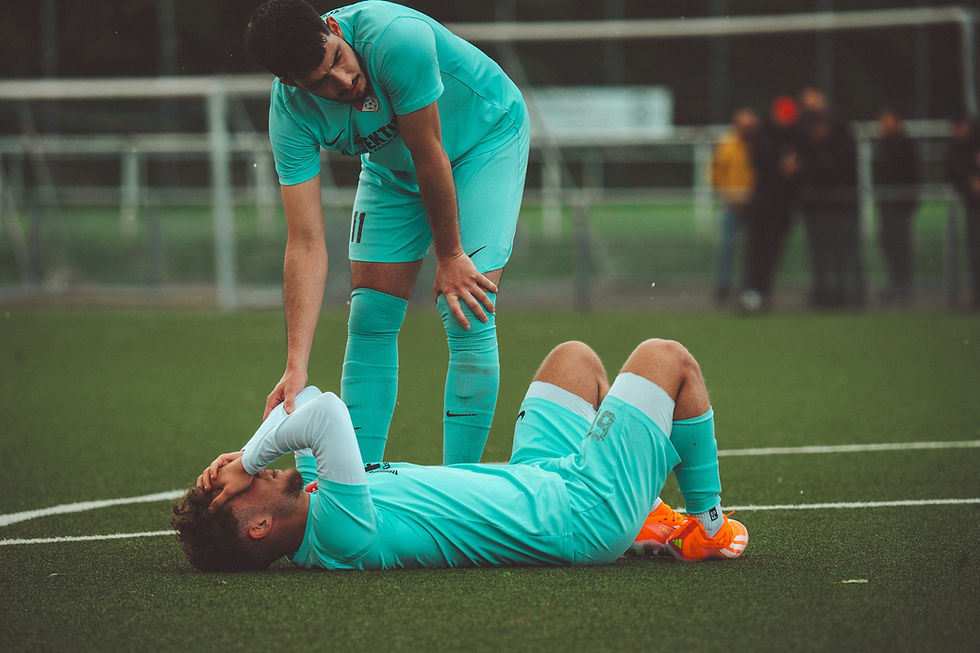Neck Injuries Are Almost Always Part of a Concussion - Here’s Why
- Aaron Wallace
- Jul 9, 2025
- 2 min read
Most people think a concussion is all about the brain. But did you know that nearly every concussion also involves a neck injury? Even if you don’t have obvious neck pain, subtle issues here might be driving your headaches, dizziness, or lingering fog.

Here’s why:
The Physics of Concussion (and Whiplash)

It takes about 70-120 Gs of force to cause a concussion, but your neck tissues can be injured by as little as 4.5 Gs. That means any impact strong enough to shake your brain almost certainly strained your neck, too.
Think of your head and neck like a bobblehead. When your brain accelerates inside your skull, your neck structures are absorbing — and trying to slow — that force. Ligaments, joints, muscles, and nerves can all be affected.
Why Neck Dysfunction Matters
The upper neck shares nerve pathways with your head and eyes. If these areas become irritated or stiff, they can:
Refer pain into your head, causing headaches that feel like they’re coming from your temples, forehead, or behind the eyes.
Disrupt eye movement control, leading to visual tracking problems and dizziness.
Confuse your body’s sense of balance, because your neck helps tell your brain where your head is in space.
The Missing Piece in Many Concussion Recoveries
Many people with “post/prolonged-concussion syndrome” actually have a combination of mild brain injury plus neck-related problems that haven’t been fully addressed.
That’s why I include a thorough neck and sensorimotor assessment as part of every concussion evaluation. This evaluation may come at the first, second or third visit all depending on the person in front of me and their current symptoms. Treatment often involves gentle manual therapy, specific exercises to retrain deep neck muscles, and eye-head coordination drills.
Bottom line:If you’ve had a concussion and still struggle with headaches or dizziness, don’t overlook your neck. It might just be the key piece holding back your recovery.



Comments